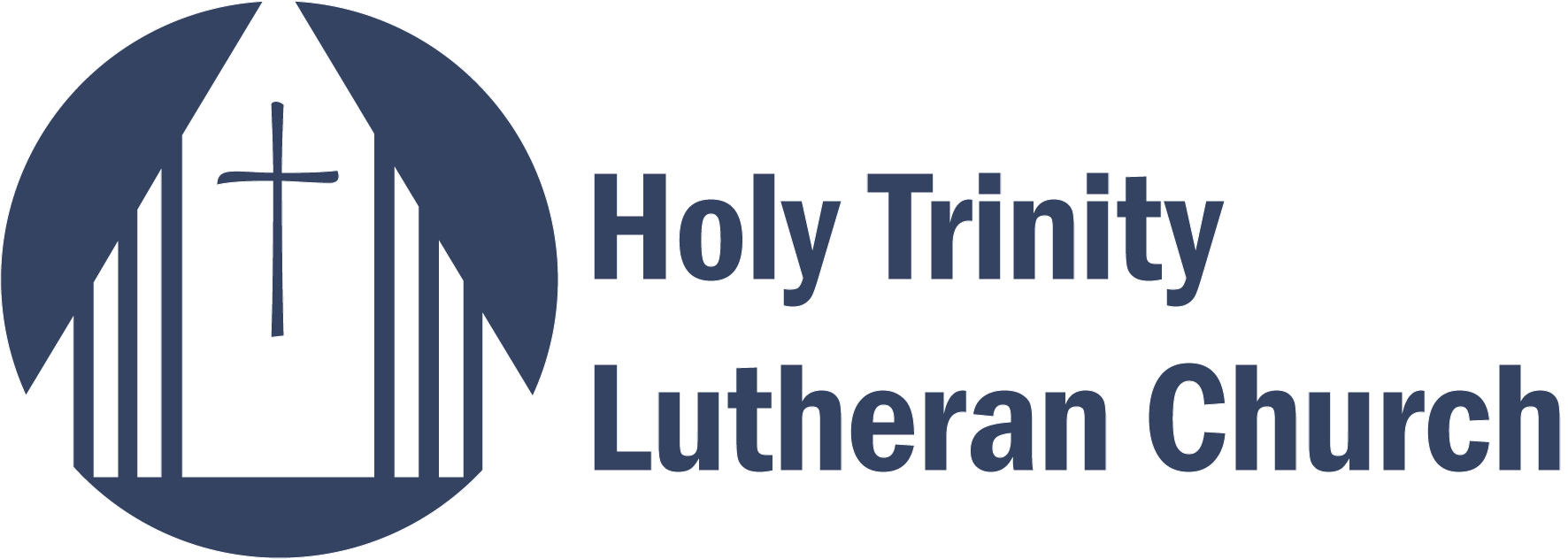A multifaceted God


Greetings in the name of the Father, the Son, and the Holy Spirit, One God. Amen! We are today at a milestone. Not because it is Memorial Day, the day we remember those who served and died in defense of this country. Not because this weekend often marks the opening of swimming pools and the official start of beach season. Not because this is the time people traditionally fire up their grills for the long summer BBQ season. Not because for most kids, this weekend starts the countdown of those last few weeks of school!
No, today is a milestone in the church, because this day is a sort of turning point in our church year. Since the end of last November, we have been focusing primarily on the life and ministry of Jesus. Our church year began with the season of Advent, with expectation and longing for Christ’s coming. We moved through Christmas, the birth of our Lord. Through the season of Epiphany, through Lent and Good Friday, marking the crucifixion. We celebrated on that culminating day of the Christian faith, the day of resurrection, Easter. We have come through the Sundays after Easter and the appearances of the risen Jesus – on to Ascension Day. This is always on a Thursday, the day on which we mark the risen Christ’s return to the Father.
And then last week: Pentecost Sunday. We celebrated the coming of that which Jesus had promised his disciples – the Holy Spirit, which in tongues as of fire empowered and invigorated that small group of people to go out into the world and do the work that Christ had commissioned them to do.
So . . . this unofficial second half of our church year begins today, with Holy Trinity Sunday. Today is alternately called “the First Sunday after Pentecost,” and it begins that long, long season of “Sundays after Pentecost” that extends all the way through the summer to the end of November and Advent once again. Trinity Sunday serves as a kind of pivot, if you will, between the two parts of the church year.
Today, on this Holy Trinity Sunday, we, God’s people, are challenged to enlarge our focus. To get out our binoculars and see the big picture. We are asked to widen our horizons to recognize that our one God works in different ways to bring forth the kingdom. God works as Father, Son, and Spirit – but one God.
Today we are challenged to celebrate the Creator who made us and all that exists, who provides all we need for this life, and who protects and preserves us.
Today we are challenged to revisit our vision of the Son who came to rescue and redeem us “from all sins, from death, and from the power of the devil . . . in order that (we) may belong to him, live under him in his kingdom, and serve him in eternal . . . blessedness.” (If you are a long-time Lutheran, you may just recognize these words which come from Martin Luther’s explanation of the Apostles’ Creed in the Small Catechism!)
Today we are challenged to grow our appreciation of the Holy Spirit. As Luther again put it so powerfully, “I believe that by my own understanding or strength I cannot believe in Jesus Christ my Lord or come to him, but instead the Holy Spirit has called . . . enlightened me . . . made me holy. . . and kept me in the true faith.”
Today, even as we look at each of them, we are challenged to view them together: Father, Son, and Spirit – one God.
The Holy Trinity – what we ponder this morning – is a doctrine of the Church. There is, in fact, no passage in the Bible that explicitly states or explains a doctrine of the Trinity. There are in the Bible many seeds of Trinitarian doctrine. Our texts this morning – from Isaiah, from Romans, from John’s Gospel – all contain these Trinitarian seeds. That favorite and oft-quoted passage, the Great Commission in Matthew’s Gospel, “‘Go therefore and make disciples of all nations, baptizing them in the name of the Father and of the Son and of the Holy Spirit,’” (Matt 28:19) certainly contains the Trinitarian seeds – as does Paul’s great benediction at the end of Second Corinthians, “The grace of the Lord Jesus Christ, the love of God, and the communion of the Holy Spirit be with all of you.” (2 Cor 13:13).
So while Trinitarian language does exist in the Bible, while Trinitarian language was part of the ancient church from the very beginning, the doctrine of the Trinity did not really crystallize until the 4th and 5th centuries. This was a time in history when faithful Christians struggled to record a true understanding of the Christian faith in the midst of many heresies which were popping up like weeds in the Church. It was a time when faithful Christian people reflected on scripture and attempted to render into words the nature of the one God who works in three different ways. The Church’s great statement of faith, the Nicene Creed, emerged from this period of faithful reflection.
“We believe in one God, the Father, the Almighty, maker of heaven and earth.
“We believe in one Lord . . . the only Son of God . . . . For us and for our salvation he came down from heaven.
“We believe in the Holy Spirit, the Lord, the giver of life, who proceeds from the Father and the Son.” “One God in three persons” – this is the shorthand the church has traditionally and faithfully used in proclaiming its Trinitarian belief.
To get at the multi-faceted nature of God, let’s reflect on how God is portrayed in our biblical texts this morning. In our first lesson, the prophet Isaiah encounters the God of glory, power, and might. There are few more stirring passages than Isaiah’s majestic vision of “the Lord sitting on a throne, high and lofty” – Isaiah coming before the God of grandeur, splendor, and authority. The seraphs trumpet the divine holiness: “‘Holy, holy, holy is the Lord of hosts; the whole earth is full of his glory.’” Isaiah is overcome by the power and mystery; he is overwhelmingly aware of who he is, “‘a man of unclean lips.’” And yet the seraph reaches out and touches this man of unclean lips, and Isaish is transformed. “‘Here am I,’” he says. “‘Send me!’”
In his letter to the Romans, Paul draws a contrast between life in the Spirit and life without the Spirit. We are no longer people of the flesh, but people of the Spirit. We are no longer debtors and slaves, but joint heirs. Heirs alongside Jesus Christ. Children who are now able to call to “‘Abba! Father!’” because “all who are led by the Spirit of God are children of God.” Through God’s Spirit we move from one place and one position – to a divine place, a divine position.
And finally, from John’s Gospel, the great story of the leader and learned man Nicodemus who comes right out and asks in so many words, “Who are you, Jesus?” Nicodemus does connect Jesus to the presence of God, but he can’t seem to grasp what Jesus is saying – to understand about the Spirit and how the Spirit brings about new birth, new life, new understanding, and a place in God’s kingdom. God wants for all of us full, gushing, overflowing new and eternal life. It’s arrived, right now, right here! Do you see it? Jesus asks Nicodemus.
Our lessons remind us of three things: Our God is powerful, sitting on a high and lofty throne and being proclaimed as holy. Our God continually reaches out, transforming lives, like Isaiah’s.
Two, our God lived on this earth. Our God knows what it is like to experience joy. To be unrecognized, misunderstood, even denied and betrayed by friends. Our God knows what it is like to face death. Our God has faced death.
And finally, our God is presence – constant presence. Our God is in us and around us and swirls in every second and every aspect of our lives. Reaching, guiding, pushing, working – sometimes even arguing with us – so that we are able to recognize and worship “‘Abba! Father!’”
God in three persons – so we can know God’s love. Be named God’s children. Claim ourselves as God’s heirs.
This Holy Trinity Sunday encourages us to expand our understanding of God – of the work of Father, Son, and Holy Spirit, yet one God. This God is mighty and sovereign over all, of divine heaven and human experience. There is nothing that we can go through that our God doesn’t know. Our God, One in Three, knows the deepest depths; Our God, Three in One, knows the greatest joys.
It is our multi-faceted, multi-dimensional God, who created us, loves us, seeks us, saves us, and makes us holy; our God who is so deep and broad that no problem, no situation, no joy or sorrow – no challenge – is too great for us to face, because God is with us.
The 5th century theologian St. Augustine wrote, “You have made us for yourself, O Lord, and our hearts are restless until they rest in you.” From this, some have imagined that each of us has a “God-shaped hole” within us, a hole that can only be filled by God’s presence. Think of everyone in this congregation – each with a “God-shaped hole.” Think of everyone in the world, each with this craving for the divine.
Our God, One in Three and Three in One – profound, wide-ranging, far-reaching, vast, broad, varied, infinite – is able to satisfy this hole in us all.
Let us pray with St. Francis of Assisi (and I invite you to close your eyes and let the images just roll over you):
You are holy, Lord, the only God, you do wonders.
You are strong, you are great, you are the most high,
you are the almighty King.
You, Holy Father, the King of heaven and earth.
You are Three and One, Lord God of gods.
You are good, all good, the highest good,
Lord, God, living and true.
You are love, charity.
You are wisdom, you are humility; you are patience;
you are beauty; you are meekness; you are security;
you are inner peace; you are joy; you are our hope and joy;
you are justice; you are moderation, you are all our riches;
you are enough for us.
You are beauty, you are meekness;
you are the protector,
you are our guardian and defender;
you are strength; you are refreshment.
You are our hope, you are our faith, you are our charity,
you are all our sweetness,
you are our eternal life:
great and wonderful Lord,
God almighty, Merciful Saviour.1
Amen.
1 Francis of Assisi, “The Parchment Given to Brother Leo,” in Francis and Clare: The Complete Works, ed. R.J. Armstrong and I.C. Brady (Mahwah, N.J.: Paulist Press/London: SPCK, 1982), pp. 99-100. © 1982 by the Missionary Society of St. Paul the Apostle in the State of New York. Reprinted in Resources for Preaching and Worship, Year B, Quotations, Meditations, Poetry, and Prayers, compiled by Hannah Ward and Jennifer Wild (Louisville: Westminster John Knox Press, 2002), p. 157.

